
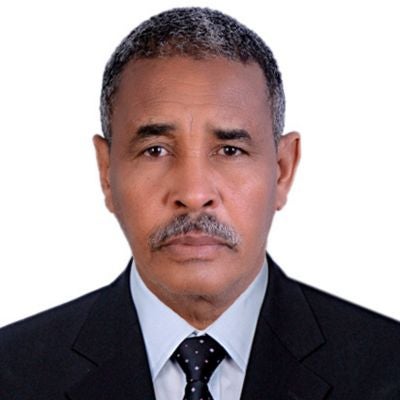
Wahbi Abdalfattah Abdalrahman is the Director of the Nile Valley Centre of Documentation and Ethnographic Studies at Nile Valley University. He has lectured across multiple faculties and served as Editor-in-Chief for various academic journals. He has collaborated with teams from Dongola University to digitize historical documents and manuscripts and implemented Koha and DSpace systems across Sudan and neighboring countries. He has held key administrative roles, including Deputy Dean of Libraries and leading the Sudan Memory Project team in River Nile State. His career spans decades of leadership in documentation, digitization, and library sciences.

Azza Ahmed Abdel Aziz is a researcher focusing on cultural understandings of health and well-being, how the sociopolitical impinges on constructions of identity and how these elements give life to diverse sociocultural manifestations in multiple domains of social life. She works on the problematic of the diversity of Sudanese identities from the vantage point of the social and the political, to elucidate how it impacts processes of exclusion, marginalization, difference, belonging, and becoming. She is the coauthor of Shifting Terrains of Political Participation in Sudan: Elements Dating from the Second Colonial (1898-1956) Period to the Contemporary Era (2021).

Muzamil Abuelgassim is a Sudanese journalist and political analyst. He is the founder and Editor-in-Chief of Alyoum Altaly and Al-Sadaa newspapers, and the co-founder of the political podcast Balad Al-Khayr. He is also the founder and CEO of both Dar Al-Afaf Publishing Company and Zawat Afnan Printing Company. From 2015 to 2019, he served as a member of the National Council for Press and Publications in Sudan. He continues to appear as a political analyst on major news networks, including Al Jazeera, Al Arabi, The National Sudan Channel, and Al Zargaa Channel.

Rogaia Mustafa Abusharaf is Professor of Anthropology at Georgetown University in Qatar. Her areas of expertise include human rights, gender and sexuality, the intersectionality of race and gender, migration and diasporic studies, African migrations, and humanistic and political anthropology, with a geographic focus on her native Sudan, the Gulf, Zanzibar, and the Indian Ocean. She is the author of several books, and her writings have appeared in several journals. She is the founding editor of Monsoon: Journal of the Indian Ocean Rim, and serves on the editorial board of POLAR: Journal of Political and Legal Anthropology. Her work has been featured on NPR, Voice of America, Ontario Public TV, the Africa and the World documentary film series, the Hartford Courant and Al Jazeera.

Ahmed Abushouk is a Professor of Modern and Contemporary History at Qatar University. Previously, he worked at Bergen University and the International Islamic University Malaysia. He has authored and edited more than 25 books and 70 peer-reviewed articles. His latest publications include The Sudanese Revolution (2018-2019): Its Motives, Phases and Challenges (2021), The Historian: Yusuf Fadl Hasan: The Sagacious Accomplishment and All-Embracing Contributions (2023), and The Sudanese Peace Agreements (1972-2020): An Analytical and Documentary Study on Juba Peace Agreement of the Sudan (2025).
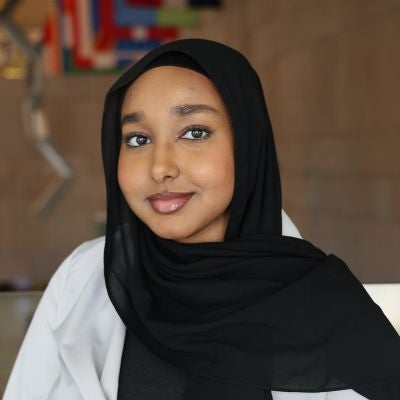
Ayah Ahmed is a competitive debater and is a junior at Georgetown University in Qatar (Class of 2027). She was the president of GU-Q’s Muslim Student Association and a member of GU-Q’s African Student Association. She is the producer for the Hiwaraat podcast at GU-Q and is an exhibition assistant for CIRS (Center for International and Regional Studies) at GU-Q. She has done many events and displays focusing on the Sudan war, such as Khartoum Aid Kitchen session, surviving the war in Sudan, and The Brown Wall exhibition For Sudan.
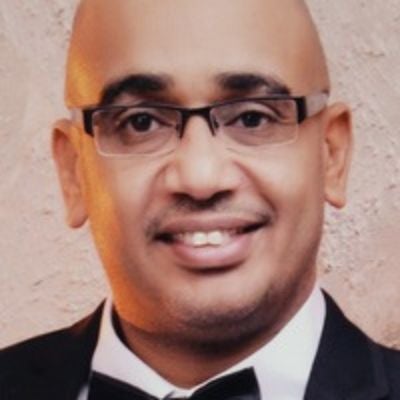
Khalid Elagab Ahmed teaches International Affairs at Qatar University. Previously, he taught at the African Studies Program & Department of Political Science, University of Toronto. His research interests include the application of post-colonial/critical theory approaches to the study of mediation, IR, security, peacebuilding, development, the ideology and methodology of “Knowledge,” and the constitutive role of the subaltern within the global/international political economy.

Rund Alarabi is an artist and translator. Her work focuses on the pictorial traditions of memory. She is a member of Locale, a platform for the development of creative efforts through exhibiting, publishing, and design.

Khalid Albaih is a Sudanese political cartoonist and human rights advocate known for his global platform, Khartoon. The 2025 Artist-in-Residence at Georgetown University in Qatar, his work has been exhibited internationally, and his writings have appeared in major publications. He was featured in The Guardian’s documentary The Story of Civil Rights is Unfinished (2016) and has published two books: Khartoon! and Sudan Retold, an art book documenting Sudan’s history through 31 Sudanese artists. His installations, such as Bahar and The Walls Have Ears (Documenta 15), address themes of displacement and social justice. In 2024, he hosted Alhasil Shino? on AJ+ and serves as editor-in-chief of KhartoonMag.com, a platform for displaced Sudanese cartoonists. He is also the creator of the award-winning @DohaFashionFridays.
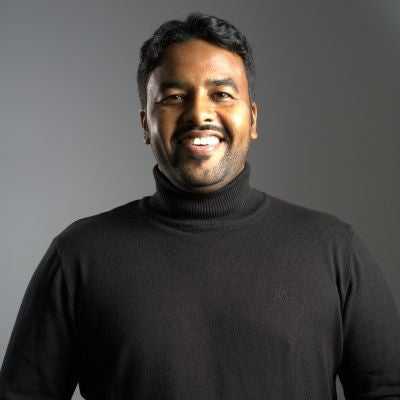
Swar Aldahab is a journalist whose work focuses on social programming that highlights the challenges faced by communities and nations under pressure. His programs amplify these stories, encouraging awareness, gratitude, and appreciation. In addition to his journalistic work, he is a sports commentator at beIN Sports in Doha, Qatar. During his tenure at beIN Sports, he has provided commentary for four FIFA World Cups: South Africa 2010, Brazil 2014, Russia 2018, and Qatar 2022.
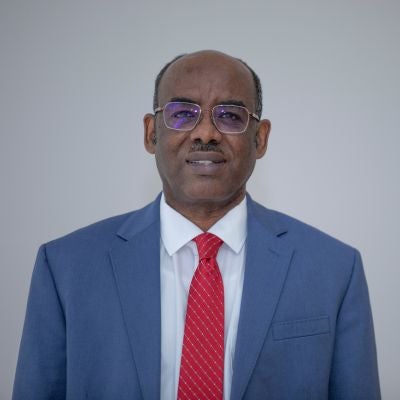
Hamid E. Ali is a Professor of Economics and Public Policy at the Doha Institute for Graduate Studies (DI) and served as the Dean of the School of Economics, Administration, and Public Policy from 2020 to 2023. He also held a research position at the US Government Accountability Office (GAO), where he substantially contributed to several reports for US congressional committees. As an author, he has edited noteworthy books including Natural Resources, Inequality, and Conflict (Palgrave Macmillan, 2021) co-authored with Lars-Erik Cederman; Institutional Reforms, Governance, and Service Delivery in the Global South (Palgrave Macmillan, 2021) co-authored with Shahjahan Bhuiyan; Darfur Political Economy: A Quest for Development (Routledge, 2014); and Defense Spending, Natural Resources, and Conflict (Routledge, 2017) co-authored with Christos Kollias. He has also authored and co-authored articles in respected scholarly journals such as Peace Research, Food Policy, Publius: The Journal of Federalism, Politics and Policy, and Defence and Peace Economics. His primary research interests are in governance, economic development, economic inequality, defense spending, natural resources, and conflict.

Muez Ali is a Research and Policy Lead at Earthna: Center for a Sustainable Future at Qatar Foundation, an Honorary Research Fellow at the Bartlett School of Environment, Energy and Resources at UCL, London, and an Adjunct Lecturer at Georgetown University in Qatar. His research activities and interests span food security, climate change in the MENA region and Sub-Saharan Africa, electrification and energy access, and the political economy of knowledge production and development. On Sudan, his research focuses on social and economic policy, conflict, civil society, and governance. With Alneel and Hassanain, he is co-author of “Conditionality Breeds Contempt: Donor and Multilateral Myopia in Sudan,” in African Studies Review 67, no. 4 (2024).

Muzan Alneel is a Sudanese industrial policy researcher and writer, passionate about development governance and people-centered policy design. She is the co-founder and Managing Director of ISTinaD Research Center (Innovation, Science, and Technology for People-Centered Development), a Sudan-based research institution established in 2021 to advance equitable and inclusive industrial development. Her work explores the intersections of industrial policy, institutional governance, and participatory policymaking. Her ongoing research focuses on community resilience in wartime Sudan, researching survival strategies like mutual aid networks and small-scale productive activities that sustain livelihoods amid conflict. She is currently a Research Fellow at the Transnational Institute (TNI) and was previously a Non-Resident Fellow at the Tahrir Institute for Middle East Policy (TIMEP). She contributed to Sudan’s industrial policy landscape as a consultant at the Industrial Research and Consultancy Center (IRCC), where she helped establish the Institute for Industrial Policy Studies. Her research and advocacy aim to bridge policy gaps and foster development strategies that prioritize people’s needs and agency.

Alsarah is a singer, songwriter, and bandleader of Alsarah & The Nubatones. She studied at Wesleyan University, writing her ethnomusicology thesis on Sudanese Zar music. In 2009, she moved to New York and formed her band, the Nubatones. The band’s music updates Sudanese traditions with various influences, but never losing the distinctive flavors of Alsarah’s homeland. In between albums, she works with the Sudanese artist collective Refugee Club Productions on a variety of projects including the critically acclaimed documentary Beats of the Antonov.

Huda Asfour is a musician and educator. Her musical journey began early in conservatories in Tunisia and Palestine, culminating in collaborations worldwide. With two studio albums, “Mars… Back and Forth” (2011) and “Kouni” (2018), to her credit, Huda has also composed music for film and multimedia projects, and has collaborated and featured with musicians internationally. Currently, she’s delving into the art of improvisation, with a keen focus on the intricate nuances of Arabic musical aesthetics and its interplay with language. She is a co-founder of several initiatives such as the DC Palestinian Film and Arts Festival, and the Cairo and Brooklyn improv orchestras.

Salma Amin is the co-founder of Andariya, a purpose-driven entrepreneur, and a leader in the marketing communications field. Passionate about storytelling and audience engagement, she excels at crafting research-driven strategies that amplify voices, ignite conversations, and yield significant impact. A staunch advocate for representation, she is committed to establishing platforms where diverse perspectives are celebrated and shared.

Zeinab Badawi has a long broadcast career that includes an epic 20 part BBC TV series on the history of Africa, now available on BBC YouTube – The History of Africa with Zeinab Badawi, and programs such as HardTalk. She holds several positions, including President of SOAS, and is a member of the high-level group of the Africa-Europe Foundation, the Royal Foundation of the Prince and Princess of Wales, and the Royal Opera House. She is a member of the advisory boards of Afro-Barometer and MINDS – the Mandela Institute for Development Studies, and sits on the Council of the UK’s Arts, Humanities and Research Council, the International Crisis Group, and the Mo Ibrahim Foundation. She has received many awards, such as Broadcaster of the Year, awarded by the Association of International Broadcasters, the Sir Brian Urquhart Award for distinguished service to international journalism and the UN, the British Academy’s President’s Medal for services to international broadcasting and female education and the Royal African Society’s Lifetime Achievement Award for services to Africa. Her book, An African History of Africa, was published in April 2024 and became an instant bestseller, reaching the number one slot in The Sunday Times best hardback non-fiction category.

Bentley Brown is a filmmaker and scholar whose work revolves around disidentification, language, and artistic translations of science. A Berlinale Talent, Durban Talent, and Africa Movie Academy Awards nominee, his past films include Guardian of the Well (True/False 2025), Revolution From Afar (PBS AfroPoP 2022), and Oustaz (Berlinale 2016). His film Faisal Goes West was the opening night film of the inaugural Sudan Independent Film Festival in Khartoum in 2014. He currently teaches as an Assistant Professor in Media Communication at the American University of Sharjah.

Marilyn Deegan is Emeritus Professor of Digital Humanities at King’s College London and the Project Leader for the renowned digital archive Sudan Memory since 2013. Originally a mediaevalist, she has worked for 30 years on projects in digital humanities and digitization for cultural institutions, in Europe, the USA, Rwanda, Ethiopia, and Sudan. She was the founding director of Forced Migration Online: a World of Information on Human Displacement, and for 17 years she edited LLC: the Journal of Digital Humanities. She has written and edited many books on digital humanities and digitization, and published numerous articles. She has also been highly successful as a fundraiser for digital projects, having raised more than £12 million pounds over the last 20 years. She is a keen photographer and in 2008 published Being a Pilgrim: Art and Ritual on the Medieval Routes to Santiago, with medievalist Kathleen Ashley, containing 250 original photographs taken over several years.

Rashid Diab is a Sudanese multidisciplinary artist, art historian, and author the Traditional and Contemporary in Sudanese Art (1999), and of Visual Arts in Sudan (2025), which was originally published by the Arab League in 2004. Before he moved back to Sudan, he was a professor at the Complutense University in Madrid. He then founded the Dara Art Gallery and the Rashid Diab Cultural Centre. Since his student days in 1976, he has exhibited internationally, with his work shown in over 200 exhibitions, including national museums, libraries, cultural centres, and art fairs. His art is held in both private and public collections worldwide. Due to the war, he was forced to abandon the country in April 2023. Despite having to flee to Madrid without his work, he has since held new exhibitions in Beirut, Amman, Cairo, Pristina, Abidjan, Nairobi, Lisbon, Córdoba and Madrid.

Ola Diab is a journalist based in Qatar, serving as the deputy editor of Marhaba Information Guide and the founder and editor of 500 Words Magazine, a Sudanese cultural publication. She has extensive experience in Qatar’s print and digital media, contributing to notable outlets such as Marhaba, Qatar Today, GLAM, and T Qatar. She has interviewed prominent figures like Sami Yusuf, Reza Deghati, and Amii Stewart. Her documentary The Unveiled won third place at the Women’s Voices Now film festival in 2011, and she is also known for Sudan: Divided Identity, Divided Land.
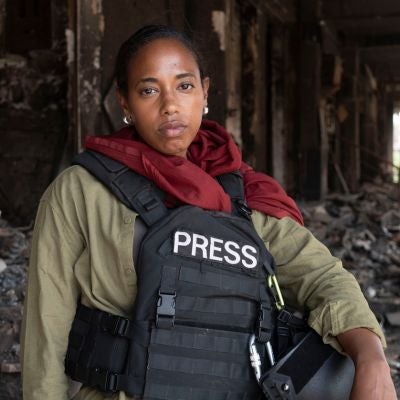
Yousra Elbagir is an award-winning Sudanese-British broadcast journalist and writer. She is currently Sky News’ Africa correspondent covering major events and stories across the continent from natural disasters to civil unrest and conflict. Most notably, her reports from the frontline of Sudan’s war have uncovered the scale of devastation in the world’s biggest humanitarian crisis. She previously reported on Sudan’s December 2018 revolution for Channel 4 News and the Financial Times, after working as an international correspondent at Vice News on HBO.

Amna Elidrissy is an architect specializing in living heritage curation and exhibition design. As a key member of Safeguarding Sudan’s Living Heritage (SSLH), she contributes to mapping, research, and curation efforts, developing datasets that document Sudan’s historical and cultural narratives.

Ruba El Melik is a writer and researcher, and has contributed to the literary journal Mizna: SWANA Lit + Art as an editor and has written for publications such as Africa Is Now, poetry.onl, Acacia, Mizna, Sand Journal, and LOLWE. She is the co-author of (Un)Doing Resistance: Authoritarianism and Attacks on the Arts in Sudan’s 30 Years of Islamist Rule (Andariya, 2022), written alongside journalist Reem Abbas.

Mohammed Elmur (Simba) is a costume designer, whose work has contributed to the Sudanese fashion movement with a number of avant-garde costume lines. He is also deeply involved in Sudan’s growing film industry by designing for a number of Sudanese productions, including You Will Die at Twenty (2019); Al-Sit (2020); Goodbye Julia (2023); and Cotton Queen (2025). He is also a filmmaker, with works that include the experimental fashion film Alfundug (2021). Through his practice, he explores how fabric, memory, and identity intersect within visual storytelling, using costume as a language to honor and reinterpret Sudanese narratives on screen. His work bridges tradition and contemporary expression, capturing the spirit of Sudan with a distinctive artistic eye. He continues to advocate for authentic storytelling within Sudanese cinema, while expanding his exploration of costume design within African and Arab film landscapes.

Qutouf Elobaid is a writer and curator with a special interest in the Poetics of the Archive. In 2016, she co-founded Locale, a platform to exhibit, design, and collaborate with Sudanese artists. She is the author of My Poets Don’t Die, an anthology in the New-Generation African Poets Series.

Nafisa Eltahir is a Sudanese journalist and a member of Locale. As a reporter for Reuters since 2018, she has focused on the Sudanese revolution, transitional period, and war, with a focus on bringing forward the experiences of ordinary Sudanese beyond imposed narratives. With Locale, she has worked on projects that illuminate corners of the Sudanese archive, including the This Will Have Been exhibition in Khartoum and the book After Memory.

Hadeel Eltayeb is a curator, writer, and oral historian focused on identity and cultural production. She is the Displays Curator at the Design Museum, leading on the annual PLATFORM and the Ralph Saltzman Prize displays. Her research interests include critical readings of the archive, negotiating narratives of ownership through oral histories, and negotiating the tension between individual, social, and public remembering through cultural practices. She is currently researching solidarity encounters in Sudan’s Modern Art scene via graphic illustration supported by Tate, the Paul Mellon Centre, and the British Art Network. She has recently contributed writing to Wes Anderson: The Archives, Tim Burton: Designing Worlds, and Recessed Space. She is a 2025 fellow of the New Architecture Writers with The Architectural Review and the Architectural Association.
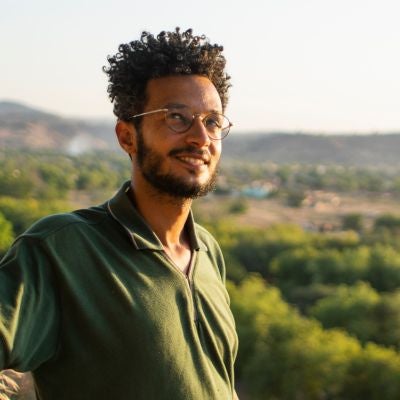
Omer Al Tijani is a Sudanese food archivist and author. He is a hospital pharmacist by trade; however, due to the lack of representation of Sudanese food online and in the UK, he decided to archive Sudanese recipes to bring attention to Sudanese cuisine. He authored the essay “Humble Salt: Archiving the Sudanese Kitchen,” which appeared in After Memory: Essays on the Sudanese Archive, and the The Sudanese Kitchen cookbook; the first comprehensive cookbook on Sudanese cooking in English.
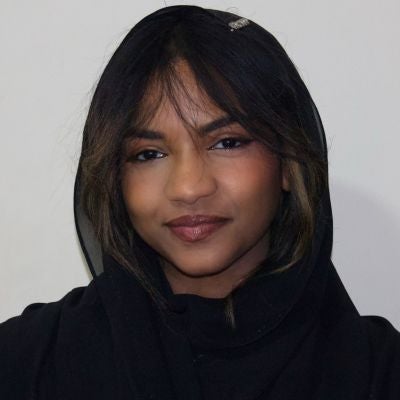
Noon Elsharif is a junior at Georgetown University in Qatar (Class of 2027), currently serving as a GU-Q Editorial Fellow. She has published opinion pieces in the online newspaper Sudan Events, addressing the political, social, and humanitarian dimensions of the conflict. In Spring 2024, she moderated the event Surviving the War in Sudan, a panel discussion that highlighted personal stories from those affected by the conflict. She also organized Hunger in Sudan, a campus event focused on the unfolding famine crisis and the urgent humanitarian response it demands.

Larissa-Diana Fuhrmann is a researcher and curator with a focus on political violence, art, co-production of knowledge and collective ways of working. Currently she is working for the Peace Research Institute in Frankfurt, Germany. She investigates how political violence is negotiated, represented and made tangible through various forms of knowledge. Resistant and decolonial approaches are central to her work as well as her engagement with creative forms of knowledge production and dissemination. In recent years, she has published in various media, curated numerous exhibitions, advised cultural institutions and led workshops on critical curatorial practice and politically engaged art.

Rebecca Glade is a Research Associate at the Makerere Institute of Social Research and the Managing Editor of the Makerere Historical Journal. Her work engages with both Africa and the Middle East history, examining the politics and social history of post-independence Sudan. Her book manuscript, Sudanese Political Movements and the Struggle for the State: 1964-1985, analyzes the ways that opposition movements pressured the state to advance their political agendas in Sudan and points to how the state developed in dialogue with them. In the process, she engages with and draws upon histories of social and cultural movements, civil society, state-society relations, and labor. Her other recent work focuses on the beginnings of Sudanese Jazz and student activism in Sudan in the 1960s and 70s.

Katarzyna (Kasia) Grabska is a feminist anthropologist and research professor, currently teaching at the University of Geneva Humanitarian Studies Centre and the Graduate Institute of International and Development Studies. She works with visual media, art-based research, feminist methodologies, and participatory methodologies. Since 2002, she has been carrying out a longitudinal study of gender relation transformations among Nuer from South Sudan in Egypt, Kenya, South Sudan, and in Sudan. She has worked closely with artists and cultural institutions in integrating marginal voices and alternative perspectives, especially of refugees and migrants, into the cultural discourses. She was a co-coordinator of a project Lectures Alternatives at the Association of Intercultural Mediators AMIC (Geneva). Between 2020 and 2024, she led a research project INSPIRE, studying inspiration of artists coming from conflict and displacement background at the Peace Research Institute in Oslo. She is a co-founder of INSPIRE Art Award. She also is a filmmaker. She is the author of among others Gender, Identity and Home: Nuer repatriation to South Sudan (2014), which received the Armory Talbot Prize in 2015, co-editor of Forced Migration: Why Rights Matter? (2008), and a co-writer of Adolescent Girls’ Migration in the Global South: Transitions into Adulthood (2019).

Suha Hasan is an architect and the founder of ASH, an architecture practice based in Sweden. She is the founder of Mawane, a platform for urban research based in Bahrain, and a founding member of the MSc Modern Sudan Collective. She is the head of the AA Visiting School Climate Cartographies, which explores the intersection of architecture and the environment. She has served as a consultant for UNDP Sudan, Sharjah Triennale, and Bahrain Authority for Culture and Antiquities. She is the research editor for the award-winning publication Places of Production (2016), and her recent publications include Moments of Architecture: Nation-Building in Sudan and the editing of Urgent Pedagogies: Climate Cartographies. Her current research explores obscure histories, material conditions, and environmental impacts connected to the built environment, specifically archaeological and heritage sites. She co-founded the Docomomo International Chapters in Bahrain and Sudan and serves as a board member and advisor in both chapters.

Eiman Hussein is a psychotherapist, supervisor, and writer/poet. The daughter of the late Hussein Shariffe, she is dedicated to preserving and curating his expansive legacy through various projects. Since 2023, she has been a Visiting Research Associate in the Department of Film Studies at King’s College London, where she collaborates with Dr. Erica Carter and other scholars on archiving and preserving Hussein Shariffe’s works. With a background rooted in Medicine and Public Health, she brings over sixteen years of experience in the charity and NGO sector, working on women’s sexual and reproductive health and rights. Her work mostly centered on anti-FGM advocacy and trauma-informed care. She is currently a Visiting Research Associate in the Department of Film Studies at King’s College London.

Amar Jamal is the Managing Editor of Atar Magazine, a bilingual (Arabic–English) publication based in Kenya that amplifies the voices of Sudanese communities affected by war and displacement. With over a decade of experience in media across Sudan, South Sudan, and Egypt he has contributed research to the Rift Valley Institute and the Small Arms Survey. Amar holds a Master’s degree in Social Anthropology and is a former writing fellow at Africa Is a Country. His work explores political economy, representation, and subaltern agency, with a focus on memory, displacement, and survival under structural violence. Through field-based research and editorial leadership, he also mentors early-career journalists via the ‘Zamala’ fellowship, helping to foster a new generation of storytellers rooted in community narratives and journalistic integrity.
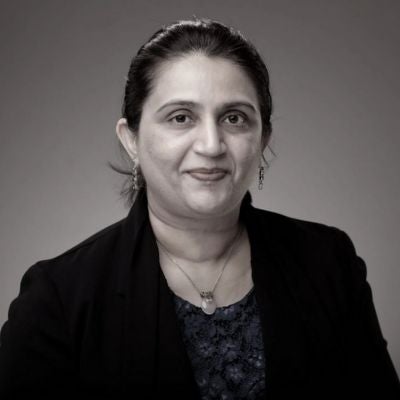
Neelima Jeychandran is an Assistant Professor of African Visual Culture in the Department of Art History at Virginia Commonwealth University, Qatar. She is an ethnographer, editor, and scholar who works on oceanic crossovers and material histories of West and East Africa and western India. She is co-editor of the book Reimagining Indian Ocean Worlds (Routledge, 2020) and the co-editor of the Verge journal issue on “Indian Ocean Studies, African-Asian Affinities” (2022), and the series co-editor of the Routledge Indian Ocean and Trans-Asia book series.

Ala Kheir is a photographer and educator whose work explores personal narratives and social change in Sudan. He is actively engaged in Sudanese photography archives, researching, restoring, and exhibiting the works of photographers like Elsharif Aboud and Abbas Habiballah. He is the founder of The Other Vision (TOV), a photography platform dedicated to education and training in Sudan, connecting young photographers with the broader African photography community. He has also collaborated with the Centers of Learning for Photography in Africa in Johannesburg. He serves as the World Press Photo 2025 Africa Jury Chair and has been a jury member for the Contemporary African Art Prize since 2018.

Nesrine Malik is a Sudanese author and journalist known for her wide-ranging commentary on issues of race, identity, politics, and international affairs. Her book We Need New Stories: Challenging the Toxic Myths Behind Our Age of Discontent (2019) critiques the narrative foundations of increasingly intolerant and authoritarian politics in Britain and the United States, exploring how once-fringe views have gone mainstream. Her columns in leading outlets, including the Guardian, New York Times, and Washington Post, address topics ranging from Islamophobia and feminism to African politics, with deep insights into the ways colonial and postcolonial legacies shape our contemporary world. She received the 2021 Robert B. Silvers Prize for Journalism.

Helen Mallinson as part of Mallinson Architects and Engineers, is currently a co-director of the British Council Cultural Protection Fund project, Safeguarding Sudan’s Living Heritage (SSLH) against Conflict and Climate Change. She is an experienced designer, teacher, academic, and senior manager. She has been working in Sudan since 2018, when she started as project manager for the Western Sudan Community Museums project under lead partners ICCROM-Sharjah and the British Institute of Eastern Africa.

Safwan M. Masri is the Dean of Georgetown University in Qatar and a Distinguished Professor of the Practice at Georgetown’s Walsh School of Foreign Service. Before joining Georgetown in October 2022, Professor Masri served as Executive Vice President for Global Centers and Global Development at Columbia University and was a Senior Research Scholar at Columbia’s School of International and Public Affairs. Prior to that, he held the position of Vice Dean and Professor at Columbia Business School, and previously taught engineering at Stanford University. He was also a visiting professor at INSEAD (Institut Européen d’Administration des Affaires). Dean Masri is the author of Tunisia: An Arab Anomaly (Columbia University Press, 2017). He is a lifetime member of the Council on Foreign Relations and an honorary fellow of the Foreign Policy Association. He is the founding chairman of King’s Academy and Queen Rania Teacher Academy in Jordan. Currently, he serves as a trustee of International College in Beirut and is a director of AMIDEAST and Endeavor Jordan.

Suzi Mirgani is the Editor/Assistant Director for Publications at CIRS, Georgetown University in Qatar. She oversees the Center’s publications and researches the intersection of politics and popular culture. She is author of Target Markets: International Terrorism Meets Global Capitalism in the Mall (Transcript 2017) and editor of Informal Politics in the Middle East (Oxford University Press 2020) and Art and Cultural Production in the Gulf Cooperation Council (Routledge 2018), among other volumes. Her recent publications include “Peeking behind the Curtain: Gulf Filmmakers Imagine the Lives of Female Migrant Domestic Workers in the Arabian Peninsula” (2023) and “Consumer Citizenship: National Identity and Museum Merchandise in Qatar” (2019). Her creative work includes poetry, “Some Behavioral Characteristics of the Sudanese Honey Bee (Apis mellifera sudanensis),” Mizna 23, no. 2 (2022), and films: Cotton Queen (2025); Kamala Ishag: States of Oneness (2022); and Al-Sit (2020).

Khalid Mustafa Medani is an Associate Professor of Political Science and Islamic Studies at McGill University, where he is also Chair of the African Studies Program and Director of the Institute of Islamic Studies. His research focuses on globalization, and the political economy of Islamist and Ethnic Politics in Africa and the Middle East, with a special focus on Sudan, Egypt, and Somalia. He is the author of Black Markets and Militants: Informal Networks in the Middle East and Africa (2021), which received an award from the American Political Science Association. In addition, he has published on the roots of political radicalization, the debate over informal financial markets, and civil conflict in the Horn of Africa with a special focus on the armed conflicts in Sudan and Somalia. His work has appeared in Political Science and Politics (PS), the Journal of Democracy, the Journal of North African Studies, Current History, Middle East Report, Review of African Political Economy, Arab Studies Quarterly, and the UCLA Journal of Islamic Law. He is a previous recipient of a Carnegie Scholar on Islam award from the Carnegie Corporation of New York and, more recently, he was awarded a Woodrow Wilson Scholarship from the Woodrow Wilson Center for International Scholars in 2020-2021.

Yafil Mubarak is a Sudanese curator. In 2020, he relocated to Sudan from Spain to direct Dara Art Gallery, while simultaneously managing and archiving the work of renowned Sudanese painter Rashid Diab. Over the past five years, Yafil has curated numerous exhibitions both in Sudan and internationally. Notably, in 2024, he curated a show at the LouiSimone Guirandou Gallery in Côte d’Ivoire and co-curated Sudan: A Visual Art Narrative, held in London in June—a landmark exhibition, highlighting the pioneers of Sudanese contemporary art. In addition to curatorial work, he is deeply involved in promoting Sudanese artists on the global stage and managing the careers of several painters.
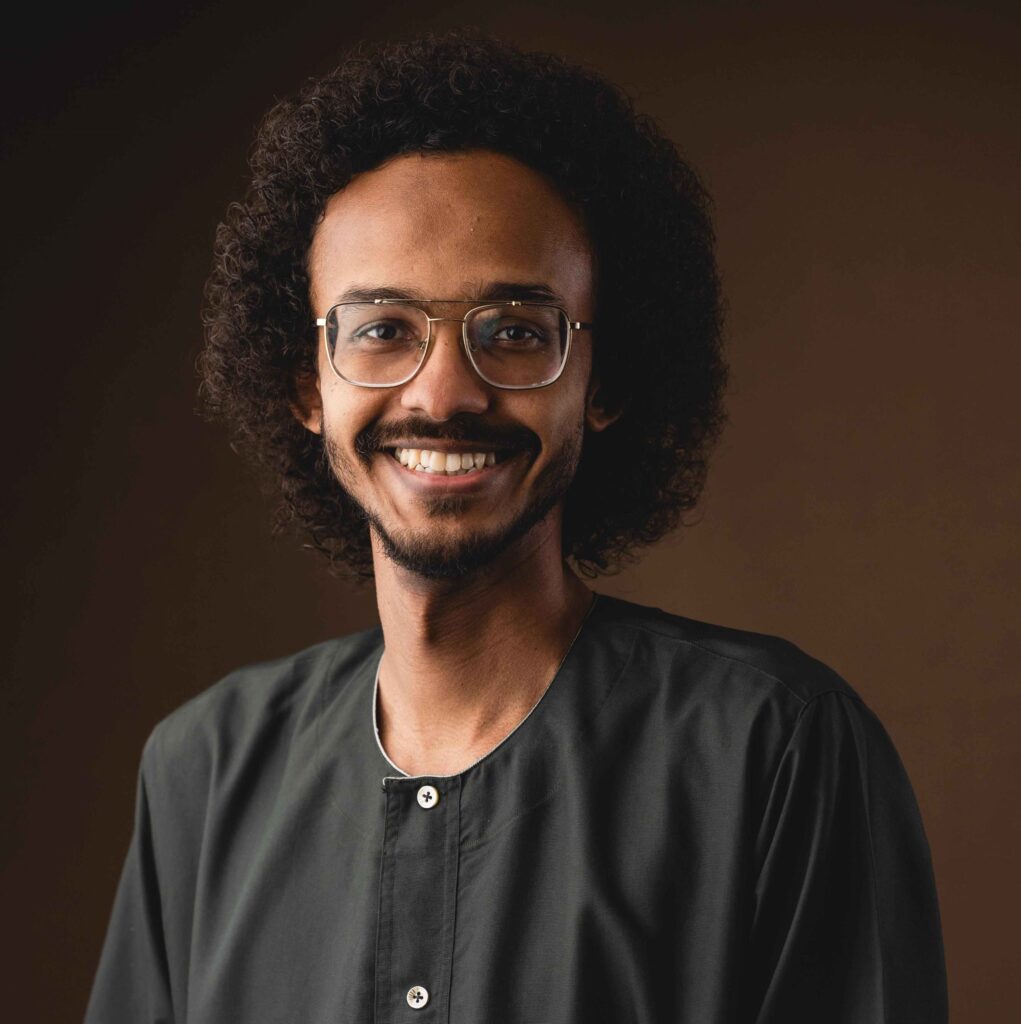
Ibrahim Mursal is a Norwegian-Somali-Sudanese filmmaker and writer whose work explores identity, leveraging his multicultural background to challenge established views and foster meaningful dialogue. Originally trained as an oil engineer, Mursal pursued his passion for film, achieving international acclaim with his breakthrough documentary, The Art of Sin (2020). His subsequent short documentaries include Connections (2022), examining multicultural youth perspectives, and Set-Pieces (2024), which premiered at the Bergen International Film Festival. Mursal’s work expanded from documentary into fiction, directing the critically acclaimed short film, African Family Dinner (2024), selected in major film festivals all around the world. With support from the Norwegian Film Institute, he is now developing his first feature film, exploring justice, morality, and cultural upbringing. He also is developing a hybrid Narrative/Video Art project, exploring the class struggle through the lens of Islamic religious folklore.

Anna Simone Ruemert is a political anthropologist and a gender studies scholar. She is currently a Crown Center Junior Research Fellow at Brandeis University. Prior to this, she held a postdoctoral fellowship at The New School’s Zolberg Institute on Migration and Mobility. Her work has appeared or is forthcoming in Cultural Anthropology, Mashriq&Mahjar, IJMES, Signs: Journal of Women in Culture and Society, Merip, Rusted Radishes, Kohl Journal for Body and Gender Research, Jadaliyya, among other journals. She is currently working on two research projects in Sudan and Lebanon. Her first book manuscript Mobilized: Labor and Political Mobilization Out of Sudan follows Sudanese migrant workers in Lebanon and migrant returnees in Sudan following the 2018- revolution. Her second book project, Sex and the Civil War, examines the political economy of sex in the Lebanese Civil War (1975-1990).

Abdelrahiem (Rahiem) Shadad is a Sudanese cultural researcher and curator now based in Nairobi. He was previously the director of The Rest, a residency for displaced artists in Nairobi. He is passionate about shedding light on the conflict in Sudan and its underreported social consequences. Prior to the war, Rahiem ran the Downtown Gallery, Sudan’s fastest-growing gallery since 2019.

Aala Sharfi is a Sudanese design director and founding member of Locale. Her work focuses on visual storytelling and branding. At Locale, she contributes to the design, publication, and exhibition of projects that engage with Sudanese archives and collective memory.

Omnia Abbas Shawkat is a creative and humanitarian media projects and sustainability manager and trainer. She is one of two founders of Andariya, a bilingual digital multimedia cultural platform, research and cross-cultural enterprise launched in 2015 in Sudan and in the East and Horn of Africa in 2021.

Gussai H. Sheikheldin is a Senior Research Fellow with STIPRO (Science, Technology and Innovation Policy Research Organization), Tanzania, Adjunct Assistant Professor with the School of Engineering Practice & Technology, McMaster University, Canada, and former Director (2020-2021) of the Industrial Research and Consultancy Centre, Sudan. His work revolves around illuminating synergies between techno-science and socio-economic institutions to advance policies and solutions in governing industrial sectors, national research & innovation systems, and comprehensive agenda for sustainable development.

Haneen Sidahmed is a Sudanese-American multimedia artist, storyteller, and archivist. Her archival work and artwork are intimately entwined, both seeking to explore the intricacies and contradictions of diasporic experience. She is a nostalgia-junkie interested in how Sudanese communities rectify diasporic ruptures through collective memory and radical imagination. Her current projects include the Sudan Tapes Archive, an audio digitization project that seeks to build an accessible sonic archive of Sudanese cassette tapes. Her archival work has been featured on GQ Middle East, NTS Radio, and The World. She has exhibited artwork in Oakland, Toronto, Rotterdam, and Dubai.

Ahmad Sikainga is a Professor of African History at the Ohio State University. His academic interests embrace the study of Africa, the African Diaspora, and the Middle East with a focus on slavery, labor, urban history, and popular culture. The geographical focus of his research is the Sudan, the Nile Valley, North Africa, and the Persian Gulf. His publications include Slaves into Workers: Emancipation and Labor in Colonial Sudan (1996), City of Steel and Fire: A Social History of Atbara, Sudan’s Railway Town, 1906-1984 (2002), and dozens of articles and book chapters. He is also one of the editors of Africa and World War II (Cambridge, 2015), Post-Conflict Reconstruction in Africa (2006), and Civil War in Sudan (1993).
Almas Art Foundation is a London based non-profit organisation aiming to document and create awareness for the practices of African and African diaspora artists through a programme of publications, exhibitions and films.
Alhosh Gallery serves as a dynamic cultural hub, hosting a diverse array of art events that range from contemporary art exhibitions to traditional art showcases, with a steadfast commitment to fostering creativity and artistic dialogue.